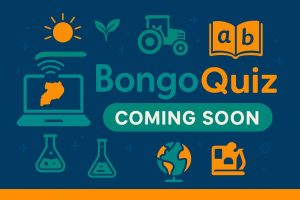Contents
- 1 Introduction to biology
- 2 Meaning of biology
- 3 The branches of biology
- 4 Biology in everyday life
- 5 careers in studying biology
- 5.1 1. Healthcare and Medicine
- 5.2 2. Research and Academia
- 5.3 3. Environmental Conservation
- 5.4 4. Biotechnology and Pharmaceutical Industry
- 5.5 5. Forensic Science
- 5.6 6. Science Communication and Policy
- 5.7 7. Education
- 5.8 8. Industry Sales and Marketing
- 5.9 Frequently Asked Questions: Introduction to Biology
- 5.9.1 What is biology?
- 5.9.2 Why is biology important?
- 5.9.3 What are the main branches of biology?
- 5.9.4 Do I need a laboratory to study biology?
- 5.9.5 Can I specialize in biology?
- 5.9.6 How does studying biology impact society?
- 5.9.7 What skills do I need to be successful in biology?
- 5.9.8 How can I pursue a career in biology?
- 5.9.9 What are some current hot topics in biology?
- 5.9.10 Can biology be studied online?
Introduction to biology
Biology is the scientific study of living organisms and their interactions with the environment. It explores the diversity of life, from microscopic bacteria to complex ecosystems. Key principles include genetics, evolution, ecology, and cellular processes, providing a foundation for understanding the intricacies of life on Earth.
Introduction:
In this chapter, we will delve into the fundamental concepts of biology, exploring the diverse realms of life. We’ll begin by examining the basic characteristics of living organisms and then journey through the intricacies of cells, genetics, and evolution. The chapter will also unfold the wonders of biodiversity, ecology, and the interdependence of living organisms within ecosystems. By the end, you’ll have a solid foundation in the key principles that underpin the fascinating world of biology.
Meaning of biology
Biology is the scientific discipline that investigates and studies living organisms and their interactions with each other and their environment. It encompasses a wide range of topics, from the structure and function of cells to the dynamics of ecosystems, aiming to understand the mechanisms that govern life and its various forms.
The branches of biology
Biology is a diverse field with numerous branches, each focusing on specific aspects of living organisms. Some major branches of biology include:
1. Botany: Study of plants, including their structure, growth, reproduction, and classification.
2. Zoology: Examination of animals and their behavior, physiology, classification, and distribution.
3. Microbiology: Exploration of microscopic organisms such as bacteria, viruses, and fungi.
4. Genetics: Investigation of heredity and variation in living organisms.
5. Ecology: Study of the relationships between living organisms and their environments.
6. Anatomy: Detailed examination of the structure of organisms and their parts.
7. Physiology: Analysis of the functions and activities of living organisms and their parts.
8. Evolutionary Biology: Exploration of the processes and patterns of biological evolution.
9. Cell Biology: Investigation of the structure and function of cells, the basic units of life.
10. Biochemistry: Study of the chemical processes within and related to living organisms.
11. Biotechnology: Application of biological principles to develop technologies for various purposes.
12. Neuroscience: Examination of the nervous system and its role in behavior and cognitive functions.
These branches collectively contribute to our understanding of the complexity and diversity of life on Earth.
Biology in everyday life
Biology is woven into various aspects of our everyday lives, influencing and shaping our experiences in numerous ways:
1. Nutrition: Understanding biological processes helps us make informed choices about the food we eat and how it impacts our health.
2. Medicine: Biology is crucial in the development of medical treatments, drugs, and vaccines, contributing to advancements in healthcare.
3. Environmental Awareness: Biological concepts guide our understanding of ecosystems, biodiversity, and environmental issues, influencing our decisions to protect and conserve nature.
4. Genetic Traits: Biological principles explain inherited traits, genetic disorders, and the basis of family resemblances.
5. Fitness and Exercise: Knowledge of anatomy and physiology aids in optimizing physical fitness and well-being through exercise.
6. Disease Prevention: Understanding biology helps us comprehend the spread of diseases and the importance of practices like vaccination and hygiene.
7. Agriculture: Biological insights contribute to improving crop yields, pest control, and sustainable farming practices.
8. Reproduction and Family Planning: Biology plays a central role in family planning decisions and understanding reproductive health.
9. Biotechnology Applications: Everyday products, from medicines to household items, often involve biotechnological processes derived from biological principles.
10. Ecosystem Services: Appreciating the interconnectedness of living organisms highlights the importance of ecosystems in providing services like clean air, water, and pollination.
11. Pet Care: Understanding animal biology enhances our ability to care for pets, ensuring their health and well-being.
12. Forensic Science: Biological techniques aid in crime scene investigation, DNA analysis, and solving criminal cases.
In essence, biology is not confined to laboratories; its principles are integral to our daily lives, influencing decisions from health and nutrition to environmental stewardship.
careers in studying biology
Studying biology opens up a diverse range of career paths, reflecting the breadth and depth of the field itself. Biology, the study of living organisms and their interactions with the environment, branches into numerous specialties, catering to a variety of interests and skills. Here are some careers for biology majors, spanning from traditional roles to emerging fields:
1. Healthcare and Medicine
- Doctor and Surgeon: Requires medical school and residency.
- Nurse and Nurse Practitioner: Involves direct patient care, requiring specific nursing degrees.
- Dentist: Specializes in oral health; requires dental school.
- Pharmacist: Focuses on dispensing medications and advising on their safe use.
- Physical Therapist: Helps patients recover and improve physical mobility.
- Veterinarian: Cares for animals, requiring a degree in veterinary medicine.
2. Research and Academia
- Research Scientist: Conducts experiments in various biology subfields, often requiring a Ph.D.
- Biotechnologist: Works on applying cellular and biomolecular processes to develop products.
- Microbiologist: Studies microorganisms and their effects on humans, animals, and the environment.
- Geneticist: Researches genes, genetic variation, and heredity in organisms.
- Ecologist: Studies ecosystems and the interactions between organisms and their environments.
- Professor: Teaches biology subjects at colleges and universities, often combined with research.
3. Environmental Conservation
- Conservation Biologist: Works to protect and restore biodiversity and natural habitats.
- Wildlife Biologist: Studies and manages wild animal populations.
- Environmental Scientist: Addresses environmental problems and works to protect the environment and human health.
- Marine Biologist: Studies marine organisms and their behaviors in their natural habitats.
4. Biotechnology and Pharmaceutical Industry
- Biomedical Engineer: Combines engineering principles with medical and biological sciences to design and create equipment, devices, computer systems, and software.
- Clinical Research Coordinator: Manages clinical trials to test new drugs for effectiveness and safety.
- Quality Control Analyst: Ensures the quality and safety of products in fields such as pharmaceuticals and food production.
5. Forensic Science
- Forensic Scientist: Applies scientific methods to contribute to crime investigations, often requiring specialization in forensic biology.
6. Science Communication and Policy
- Science Writer/Journalist: Writes about scientific discoveries and trends for the general public or specific audiences.
- Science Policy Analyst: Works at the intersection of science and policy, advising and developing policies related to science, technology, and environment.
7. Education
- Science Teacher: Teaches biology at middle schools, high schools, or private educational institutions, aiming to inspire the next generation of scientists.
8. Industry Sales and Marketing
- Technical Sales Representative: Sells scientific and technical products to businesses and research institutions, leveraging scientific knowledge to meet customer needs.
Each of these career paths may require specific advanced degrees or certifications beyond a bachelor’s degree in biology. The field is ever-evolving, with new specialties and careers emerging as science advances. Whether you’re drawn to direct patient care, the intricacies of molecular biology, the vastness of ecosystems, or the innovation of biotechnological applications, a background in biology can be your gateway to a rewarding career.
Frequently Asked Questions: Introduction to Biology
What is biology?
Answer: Biology is the scientific study of life and living organisms, including their structure, function, growth, evolution, distribution, and taxonomy. It explores the complex interactions between different forms of life and their environments.
Why is biology important?
Answer: Biology is crucial for understanding the natural world and all living things within it. It helps us to comprehend the processes of life, from molecular mechanisms within cells to ecosystem dynamics. This knowledge is vital for addressing challenges such as disease treatment, environmental conservation, and sustainable living.
What are the main branches of biology?
Answer: Biology is a diverse and expansive field, consisting of many branches. Major branches include botany (study of plants), zoology (study of animals), microbiology (study of microorganisms), genetics (study of genes and heredity), and ecology (study of ecosystems and the environment).
Do I need a laboratory to study biology?
Answer: While laboratory work is an important part of biology, enabling hands-on learning and experimentation, it’s not the only way to study biology. Observational studies, theoretical work, and computational biology are also key aspects of the field. However, access to a laboratory can enhance your understanding of biological concepts and methods.
Can I specialize in biology?
Answer: Yes, due to the vastness of the field, many biologists specialize in a specific area of study, such as molecular biology, evolutionary biology, marine biology, or neurobiology. Specialization usually occurs at the graduate level or in your career based on interests and opportunities.
How does studying biology impact society?
Answer: Biology has profound implications for society. It plays a critical role in addressing public health issues, improving agricultural productivity, conserving biodiversity, and developing new technologies and medicines. Understanding biology is essential for solving many of the world’s pressing problems.
What skills do I need to be successful in biology?
Answer: Successful biologists typically have a strong foundation in science and mathematics, good analytical and problem-solving skills, and the ability to think critically. Communication skills are also important, as sharing research findings is a key part of the scientific process. Curiosity, patience, and perseverance are essential traits for conducting research and making discoveries.
How can I pursue a career in biology?
Answer: A career in biology typically starts with a bachelor’s degree in biology or a closely related field. Further specialization often requires advanced degrees (Master’s or Ph.D.). Gaining experience through internships, research projects, and laboratory work is crucial. Career paths vary widely, from research and academia to applied fields in healthcare, environmental management, and biotechnology.
What are some current hot topics in biology?
Answer: Hot topics in biology include genetic editing (CRISPR-Cas9), personalized medicine, stem cell research, climate change and its impact on biodiversity, synthetic biology, and the microbiome’s influence on health and disease.
Can biology be studied online?
Answer: Yes, many aspects of biology can be studied online through courses and resources offered by educational institutions and platforms. While online studies can provide a solid theoretical foundation, practical laboratory skills may require hands-on experience, which some institutions offer through residential courses or partnerships.


Leave a Reply